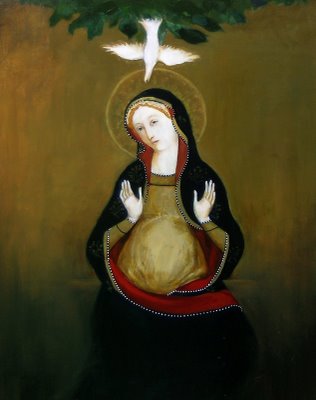
Science says that our universe is 13.75 billion years old. Mankind has been on this planet for a much shorter period of time. Science works diligently to unravel the mysteries hidden in the past history of our universe. But science is uncertain about the final outcome or fate of our universe. However, Sacred Scripture does give us much insight into what the future holds, not only for the universe but also for all of mankind.
Today’s Gospel is taken from the Gospel of Luke. In this passage, Luke describes events that will precede the Second Coming of Christ. Luke’s version of the Gospel is very similar to the one we read just two weeks ago from Mark. The two Gospel passages are almost identical.
Mark wrote his Gospel first, before the fall of Jerusalem in 70 A.D. In the days that Mark wrote his Gospel, the Jewish Christians had supposed that the fall of Jerusalem and the destruction of the Temple would coincide with the end of the world. So Mark was writing to an audience that was anticipating the eminent Second Coming of Jesus. But the fall of Jerusalem came and went and the world did not end.
Luke wrote his Gospel after the fall of Jerusalem and the destruction of the Temple. So Luke was writing to an audience that was confused by the fact that Jesus did not arrive as expected. Therefore, the fall of Jerusalem and the destruction of the Temple touched off a big crisis of faith for the early Church, because the expected end of the world did not come with it.
Many of those early Christians gave up altogether their belief in the Second Coming of Christ. They quickly settled for earthly pleasures, and became very lax in their moral values. The enemies of the Church in Thessalonica were saying that Paul’s teaching, that Jesus would return to take His followers with Him, was Paul’s own fabrication. To support their case, they pointed out the fact that some of the first Christians, who thought that Jesus was coming back to take them with Him, were already dead. In other words, they were deluded in their belief. So Paul’s letter to the Thessalonians, our second reading for today, was written to encourage the Thessalonians to be patient and continue to wait for the Lord’s return and to persevere in living in a manner that will be pleasing to the Lord.
I think that for Christians today, who are living 2,000 years after Christ’s birth, it is even more problematic. After all, 2,000 years seems like a very long time to us. But we humans have a very limited perception of time. In comparison to the age of the universe, our time here is really quite short. For example, if the timeline of our universe was laid along the length of a football field, all of human history would span the thickness of a blade of grass at the goal line. Peter wrote, “This point must not be overlooked, dear friends. In the Lord’s eyes one day is as a thousand years and a thousand years as one day. The Lord does not delay in keeping His promise, though some consider it delay. Rather He shows you generous patience, since He wants none to perish but all to come to repentance.” (2 Pet 3:8-9)
In other words, we should not get discouraged at what seems like a delay. God’s time is not our time.
Are we living in the last days? Scripture says yes. In his letter to the Hebrews Paul said, “In the past, God spoke in fragmentary and varied ways to our fathers through the prophets; in this, the final age He has spoken to us through His Son.” (Heb 1:1-2) And in the Acts of the Apostles, after the Holy Spirit had been poured out as tongues of fire in that upper room, Peter spoke to the crowd saying, “You must realize that these men are not drunk, as you seem to think. It is only nine in the morning! No, it is what Joel the prophet spoke of: “It shall come to pass in the last days, says the Lord, that I will pour out a portion of My Spirit on all mankind.” (Acts 2:15-17)
Properly understood, therefore, the term “end time” refers to the time of the New Covenant. Jeremiah the prophet said, “The days are coming, says the Lord, when I will make a new covenant with the house of Israel and the house of Judah. This is the covenant I will make with them. I will place my law within them and write it upon their hearts. I will be their God and they shall be My people.” (Jer 31:31, 33)
God’s free gift of salvation has been offered to all through the birth, death and resurrection of His Son, our Lord and Savior Jesus. And in the name of Jesus, God’s Spirit has been poured out on all of mankind. God’s law, or His will, is written on our hearts. By definition then, we are living the New Covenant and are therefore living in the end times.
Now I realize that I just skirted the issue. When will Christ come again? The Catechism of the Catholic Church says, “Our lives are measured by time, in the course of which we change, grow old and, as with all living beings on earth, death seems like a normal end of life.” (CCC, 1007)
Christ will come again to all of us in time.
As to the exact timing of the Second Coming of Christ within human history, the Church says, “Since the Ascension, Christ’s coming in glory has been imminent, even though it is not for you to know times or seasons which the Father has fixed by His own authority. This eschatological coming,” or in other words, the second coming and the final judgment of humankind, “could be accomplished at any moment, even if both it and the final trial that will precede it are delayed.” (CCC, 673)
The Church, therefore, is reminding us that Christ can return at any time, either for us as an individual, or to all of mankind at the end of time. That having been said, what are we to do while we’re waiting? How should we prepare? Jesus said to “Be vigilant at all times.” (Lk 21:36)
But is it humanly possible to live in a constant state of readiness?
The best way that I can answer that question is to tell you a story, a story about a man named Howard Storm. Howard was an avowed atheist. He lived his life as an artist, confident that he could take care of himself. His goal in life was fame and fortune. He did not believe in life after death. In Howard’s mind, when you’re dead you’re dead. And the only way for him to defeat death and give his life meaning was by becoming famous. Fame would give him protection from oblivion.
Howard had little compassion for others. He believed that since we are all born into a dog eat dog world, he may as well be a winner instead of a loser. He saw people of faith as weak individuals who believed in fairy tales because they couldn’t cope with the harsh reality of life. To him, these people clung to a fantasy in order to justify their own mediocrity. Then, unexpectedly and without warning, Howard became gravely ill and died. And having died, he was permitted to experience, what he referred to as, “the sewer of the universe”, the realm of the souls who had chosen to reject God in favor of spending eternity in darkness and despair, feeding on the pain and torment of others.
Then he was permitted to experience the heavenly city of light and love, our true and ultimate home. And in this experience he came to understand that indeed we will be judged on how we lived our lives, but in that judgment, God will not be interested in our successes and failures. He will only be interested in our relationships, how we encouraged or hurt one another. Howard learned that the ultimate purpose and meaning of life is to learn how to love, to love our God, to love our neighbor, and to love ourselves. Howard learned that “We do not earn the love of God by the things we do. God’s love is given without cost or strings attached. We are to live lovingly because God loves us so much.” (My Descent Into Death, Howard Storm, pp. 37)
Howard learned that Jesus truly is the mediator between God and man and, as Howard said, “God wants us all to come home, and God has sent us someone to show us the way home. His name is Jesus.” (My Descent Into Death, Howard Storm, pp. 59)
Through the marvels of modern medicine, Howard was revived and returned to health. Needless to say, this experience totally changed his life.
What today’s readings point us to is the fact that our true and ultimate home is in heaven and that Jesus came to earth to show us the way there. Jesus also promised us that he would come again. He will come again to personally take us home with Him and He will come again in glory to judge the living and the dead. The best way for us to prepare ourselves for the Second Coming of Christ is not to engage in speculation of how or when or where. But rather, as Paul says, to “Increase and abound in love for one another and for all.” (1 Thess 3:12)








